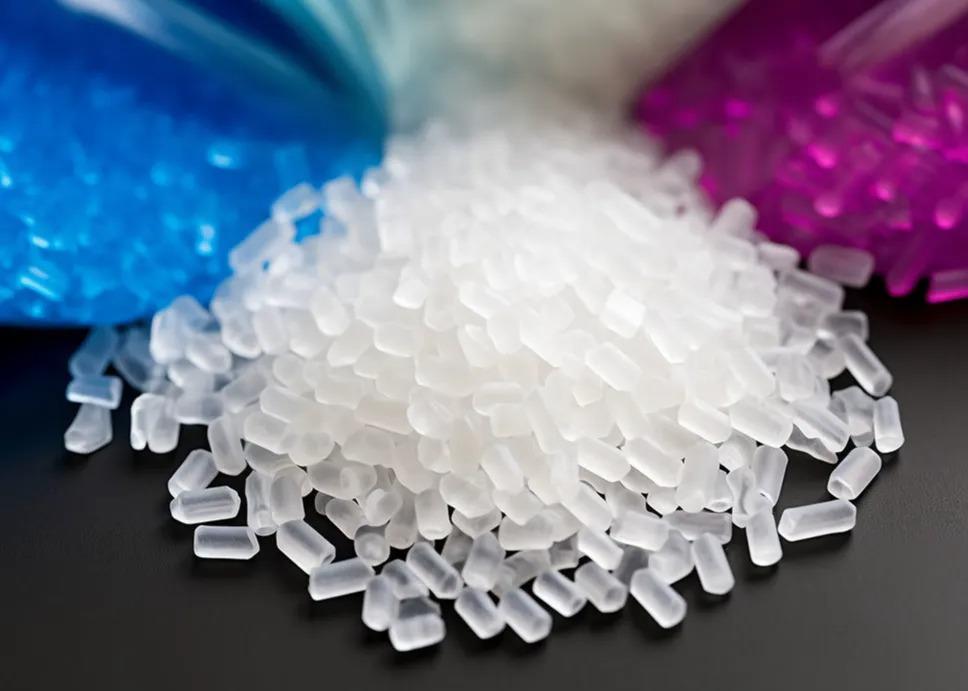Thermoplastic Elastomer Manufacturing Plant Cost Report 2025 Setup Requirements
Setting up a thermoplastic elastomer manufacturing plant involves securing raw material supply, selecting appropriate compounding and extrusion machinery, ensuring quality control systems, and complying with environmental and safety regulations.
Request for Sample Report: https://www.imarcgroup.com/thermoplastic-elastomer-manufacturing-plant-project-report/requestsample
IMARC Group's “Thermoplastic Elastomer Manufacturing Plant Project Report 2025: Industry Trends, Plant Setup, Machinery, Raw Materials, Investment Opportunities, Cost and Revenue” offers a detailed and practical guide for entrepreneurs and businesses looking to enter the manufacturing industry. The report includes in-depth analysis of capital investment requirements, project financing options, working capital needs, and projected returns.
This comprehensive business plan outlines every critical step involved in setting up a successful manufacturing plant unit from understanding the industry landscape to planning for real-world challenges. It provides valuable insights into essential components such as thermoplastic elastomer manufacturing plant cost, machinery cost, operating cost, raw material requirements, utility needs, infrastructure setup, and packaging logistics.
Thermoplastic Elastomer Industry Outlook 2025:
The thermoplastic elastomer (TPE) industry in 2025 is projected to witness steady growth, driven by rising demand in automotive, consumer goods, and medical applications. Advancements in material technology, recyclability, and lightweight properties are enhancing market adoption. Asia-Pacific remains the fastest-growing region due to rapid industrialization and manufacturing expansion, while sustainability trends are encouraging bio-based TPE development. Increasing regulatory focus on eco-friendly materials and the shift toward electric vehicles are expected to further boost demand, positioning TPEs as a preferred alternative to conventional rubber in high-performance, environmentally conscious applications.
Key Insights for Thermoplastic Elastomer Manufacturing Plant Setup:
Detailed Process Flow:
-
Product Overview
Unit Operations Involved
Mass Balance and Raw Material Requirements
Quality Assurance Criteria
Technical Tests
Project Details, Requirements and Costs Involved:
-
Land, Location and Site Development
Plant Layout
Machinery Requirements and Costs
Raw Material Requirements and Costs
Packaging Requirements and Costs
Transportation Requirements and Costs
Utility Requirements and Costs
Human Resource Requirements and Costs
Capital Expenditure (CapEx) and Operational Expenditure (OpEx) Analysis:
Project Economics:
-
Capital Investments
Operating Costs
Expenditure Projections
Revenue Projections
Taxation and Depreciation
Profit Projections
Financial Analysis
Profitability Analysis:
-
Total Income
Total Expenditure
Gross Profit
Gross Margin
Net Profit
Net Margin
Key Cost Components of Setting Up a Thermoplastic Elastomer Plant:
-
Land and Infrastructure – Cost of site acquisition, construction, utilities setup, and facility layout design.
Machinery and Equipment – Investment in compounding, extrusion, injection molding, and quality testing machines.
Raw Materials – Procurement of base polymers, additives, fillers, and colorants.
Labor and Staffing – Skilled and unskilled workforce wages, training, and recruitment expenses.
Utilities and Energy – Electricity, water, compressed air, and waste management systems.
Regulatory Compliance – Licensing, environmental clearances, and safety certifications.
Research and Development – Product formulation, process optimization, and testing.
Logistics and Supply Chain – Storage facilities, packaging, and transportation costs.
Economic Trends Influencing Thermoplastic Elastomer Plant Setup Costs 2025:
-
Raw Material Price Volatility – Fluctuations in petroleum-derived polymer prices due to global energy market instability.
Inflationary Pressures – Rising construction, machinery, and labor costs impacting capital expenditure.
Supply Chain Disruptions – Shipping delays, higher freight charges, and material shortages affecting procurement.
Technological Advancements – Automation and energy-efficient machinery reducing long-term costs but increasing initial investment.
Sustainability Regulations – Compliance with stricter environmental norms raising costs for waste management and eco-friendly materials.
Currency Exchange Rates – Variability affecting imported equipment and raw material expenses.
Regional Industrial Policies – Government incentives or tariffs influencing overall setup budgets.
Challenges and Considerations for Investors in Thermoplastic Elastomer Plant Projects:
-
High Initial Capital Investment – Significant expenditure on land, infrastructure, and specialized machinery.
Raw Material Dependency – Reliance on petroleum-based inputs and exposure to global price fluctuations.
Technological Expertise – Requirement for skilled personnel and advanced process knowledge for quality production.
Market Competition – Presence of established global players with strong supply chains and brand positioning.
Regulatory Compliance – Adherence to environmental, health, and safety standards increasing operational complexity.
Demand Uncertainty – Sensitivity to economic cycles and end-use industry performance.
Sustainability Expectations – Pressure to adopt recyclable or bio-based TPEs, impacting cost structures.
Request for Customization: https://www.imarcgroup.com/request?type=report&id=22892&flag=E
Conclusion:
The thermoplastic elastomer (TPE) sector presents strong growth potential, driven by its versatility, recyclability, and expanding applications across automotive, consumer goods, and medical industries. While the market outlook for 2025 remains positive, establishing a manufacturing plant demands substantial capital, technical expertise, and strategic planning to navigate raw material volatility, regulatory requirements, and competitive pressures. Investors who integrate sustainable practices, leverage technological advancements, and align with regional industrial incentives are better positioned to achieve long-term profitability and resilience in this evolving market.
About Us:
IMARC Group is a global management consulting firm that helps the world's most ambitious changemakers to create a lasting impact. The company excel in understanding its client's business priorities and delivering tailored solutions that drive meaningful outcomes. We provide a comprehensive suite of market entry and expansion services. Our offerings include thorough market assessment, feasibility studies, company incorporation assistance, factory setup support, regulatory approvals and licensing navigation, branding, marketing and sales strategies, competitive landscape, and benchmarking analyses, pricing and cost research, and procurement research.
Contact Us:
IMARC Group
134 N 4th St. Brooklyn, NY 11249, USA
Email: sales[@]imarcgroup.com
Tel No:(D) +91 120 433 0800
United States: (+1-201971-6302)
Legal Disclaimer:
MENAFN provides the
information “as is” without warranty of any kind. We do not accept
any responsibility or liability for the accuracy, content, images,
videos, licenses, completeness, legality, or reliability of the information
contained in this article. If you have any complaints or copyright
issues related to this article, kindly contact the provider above.
Most popular stories
Market Research

- House Of Doge And Bitstamp By Robinhood Announce Strategic Partnership For NYSE:ZONE Treasury
- Kucoin Partners With Golf Icon Adam Scott As Global Brand Ambassador
- Primexbt Wins Global Forex Award For Best Multi-Asset Trading Platform
- Your Bourse And B2BROKER Partner To Deliver Complete Brokerage Solutions
- Origin Summit Announces Wave 3: Animation Powerhouse Maggie Kang To Join Programming Lineup
- Blueberry Launches A Bold New Brand Platform






















Comments
No comment